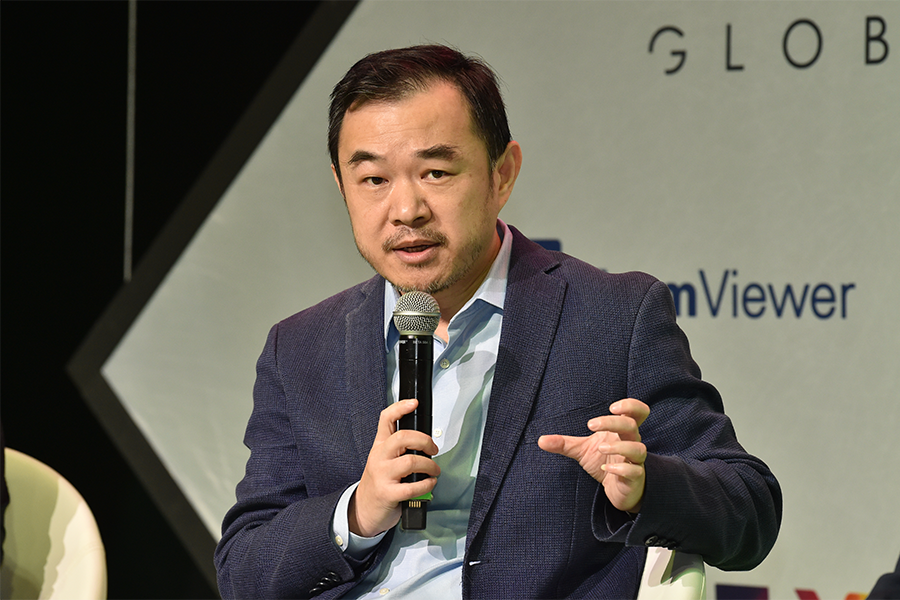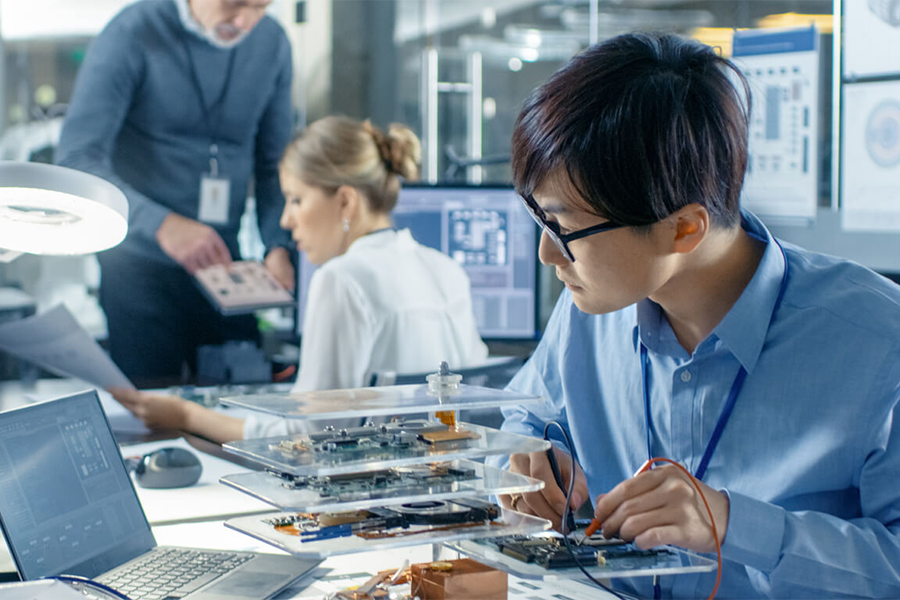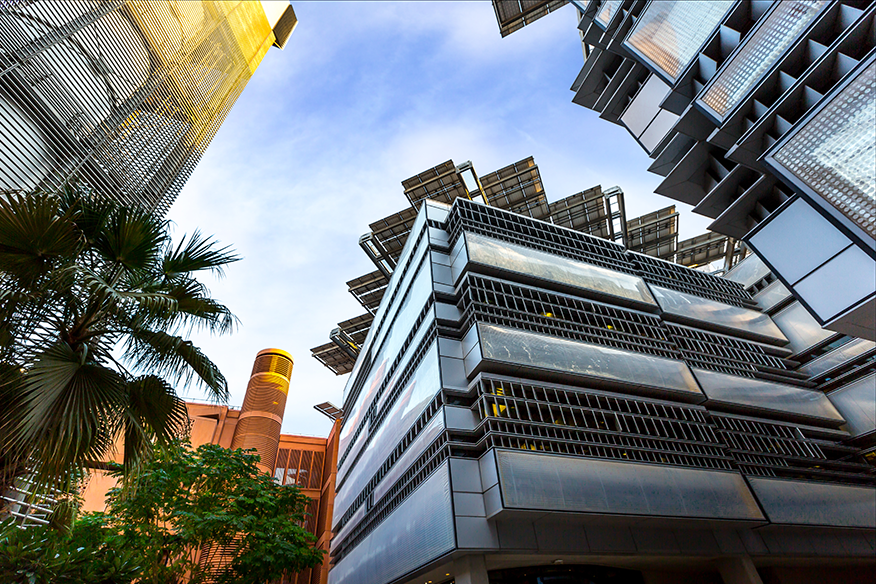
The Mohamed bin Zayed University of Artificial Intelligence in Abu Dhabi is the world’s first artificial intelligence research university, focused on advancing AI as a powerful force for human progress.
In the 19th century, it took more than a generation for the breakthrough scientific discoveries of Faraday, Maxwell, and Mendeleev in physics and chemistry to transform entire industries and change the face of the world forever. Today, the development of artificial intelligence (AI) is at a similar stage to that of chemistry and physics in those heady times, according to Professor Eric Xing, a leading AI researcher and president of the Mohamed bin Zayed University of Artificial Intelligence (MBZUAI).
“AI is still in its infancy,” Xing says. “It is in a primitive phase; we don’t even have the equivalent of a periodic table yet. That gives MBZUAI the opportunity to help establish the rules for AI. We can chart a roadmap for AI to transform science, business, and society.”
Based in the futuristic Masdar City complex in Abu Dhabi, the capital of the United Arab Emirates, MBZUAI is emerging as a global hub for AI research and as a knowledge center for the international AI community.
AI’s long-term impact on the world will be just as profound as the discoveries in physics and chemistry have been, Xing says. But unlike scientists working in these established fields, researchers in AI are continually challenged to defend the value of the new technology and address widespread reservations about AI’s trustworthiness, safety, and responsibility.

“When physicists and mathematicians study their disciplines, they focus on finding the truth—they do not usually worry about meeting people’s concerns or generating value,” Xing says. “But AI is very different. It is not just a science. We have to meet the expectations of society. AI researchers have to get out of their ivory towers. We have to evolve the science and practice of AI in a way that is accessible to the community, but at the same time, be truthful to and bound by the scientific principles intrinsic to AI.” At MBZUAI, Xing is helping to create the transparent and socially minded research university that the world needs in the age of AI—a university that encourages new thinking, inspires impactful research, and builds a culture of innovation that will last long into the future. At MBZUAI, Xing is helping to create the transparent and socially minded research university that the world needs in the age of AI—a university that encourages new thinking, inspires impactful research, and builds a culture of innovation that will last long into the future.
“Giving people the intellectual freedom they need to innovate, MBZUAI is a lighthouse for transformative ideas.” Professor Dr. Eric Xing, President, Mohamed Bin Zayed University of Artificial Intelligence
“MBZUAI is a place of knowledge creation and intellectual freedom,” Xing says. “I hope that in 100 years’ time, people will still be coming to MBZUAI from around the world to learn, research, and innovate.”
What do you say to people who are concerned about the impact of AI?
All technology and science by itself is neutral. It is not good or bad, just as electricity is not good or bad. It is about how we use it. As a researcher and university administrator, I feel it is important for science to simplify the messages that we send. We have to be clear about the context when we talk about AI as a science, as a technology, or as a tool, about the utility, benefits, and risk of AI. It should not be a black box; we have to be transparent and disclose our principles and road maps to the public. If AI reaches the same stage as electricity is now —when it is regulated and accessible and no longer seen as a complicated and dangerous science—fear and anxiety will evaporate. This is the mission of MBZUAI.
What main challenges does AI face today?
AI is still evolving. That means that setting goals, performance measures, principles of operation, and methodologies is very difficult. AI is also highly interdisciplinary. At MBZUAI we do not want just to develop fancy models or black-box solutions for industry. We want to focus on the engineering principles and safety practices of AI. We want to think about issues such as standardization and fairness.

I see MBZUAI’s role as bringing in people who are not just computer scientists and programmers. I want to take a more holistic view of the discipline of AI to drive the needs and growth of the university. If we are to understand the real value of AI and its impact on people’s lives, we need people representing all areas of science and even humanities. We want the best researchers in the world to work with us.
What is it like working at MBZUAI and living in the UAE?
It is exciting. We are a new school and we are helping develop a culture of scientific innovation. We are starting from a clean slate to also create and infuse a new spirit of entrepreneurship, rooted from intense pollination between societal needs, technological advancements and business opportunities. This requires us to review the role of the university in our mindset and framework and its public relationships. We are very agile and we can make improvements and adjustments quickly. I am fortunate to have this opportunity to serve my colleagues, help them be productive, and find a home for their professional development. That feeling is irreplaceable.
The UAE is on the rise. It is a young society that is embracing modern technology and new thinking. We have the unique opportunity to help the country become a global leader in AI innovation. That is a source of great inspiration to us. I want MBZUAI to help develop the country and to become a cornerstone of a vibrant culture of innovation in the region.
100 years from now, I hope that MBZUAI will be celebrated as a great institution and as a positive force for change![]()
As published in FORTUNE magazine









